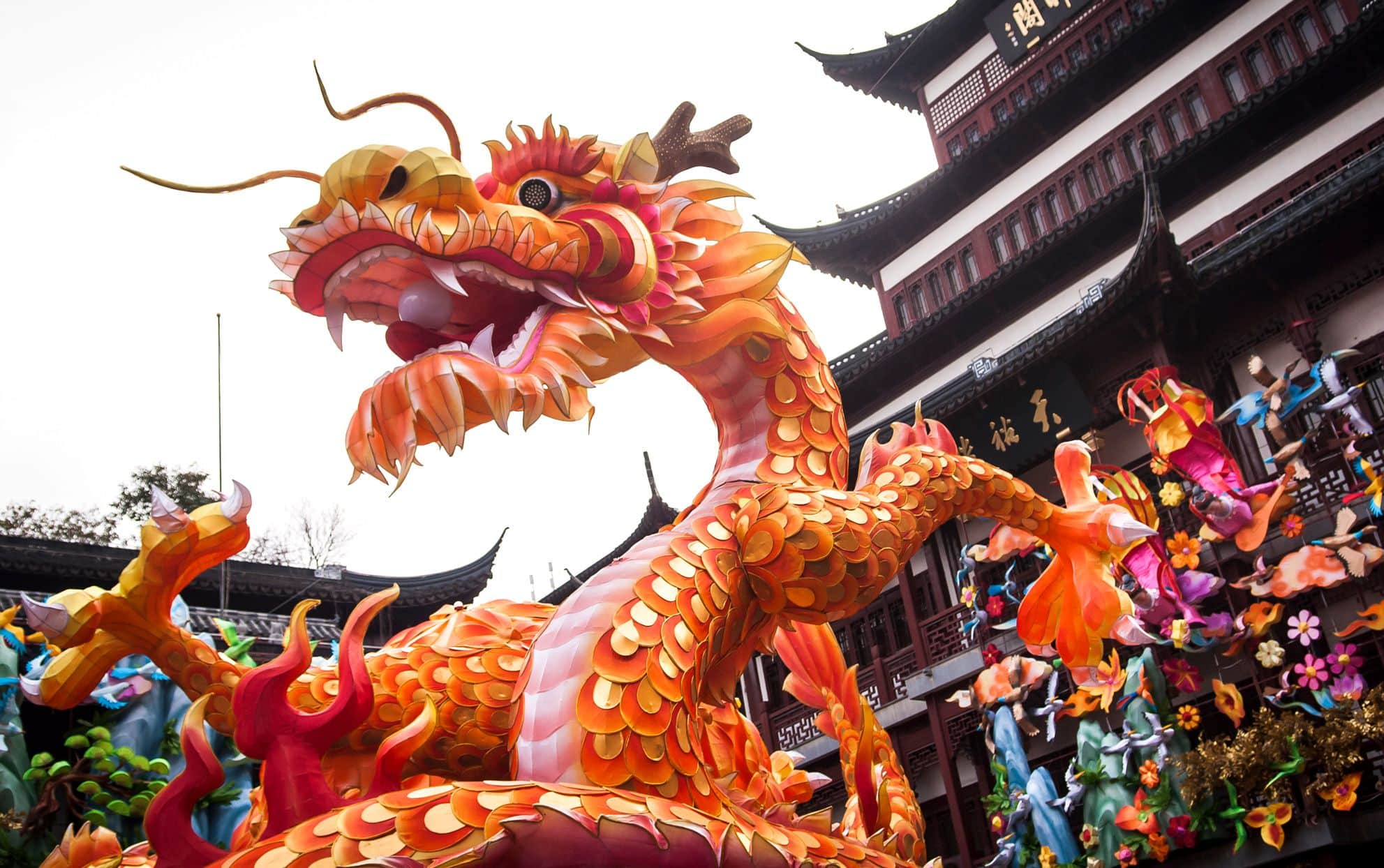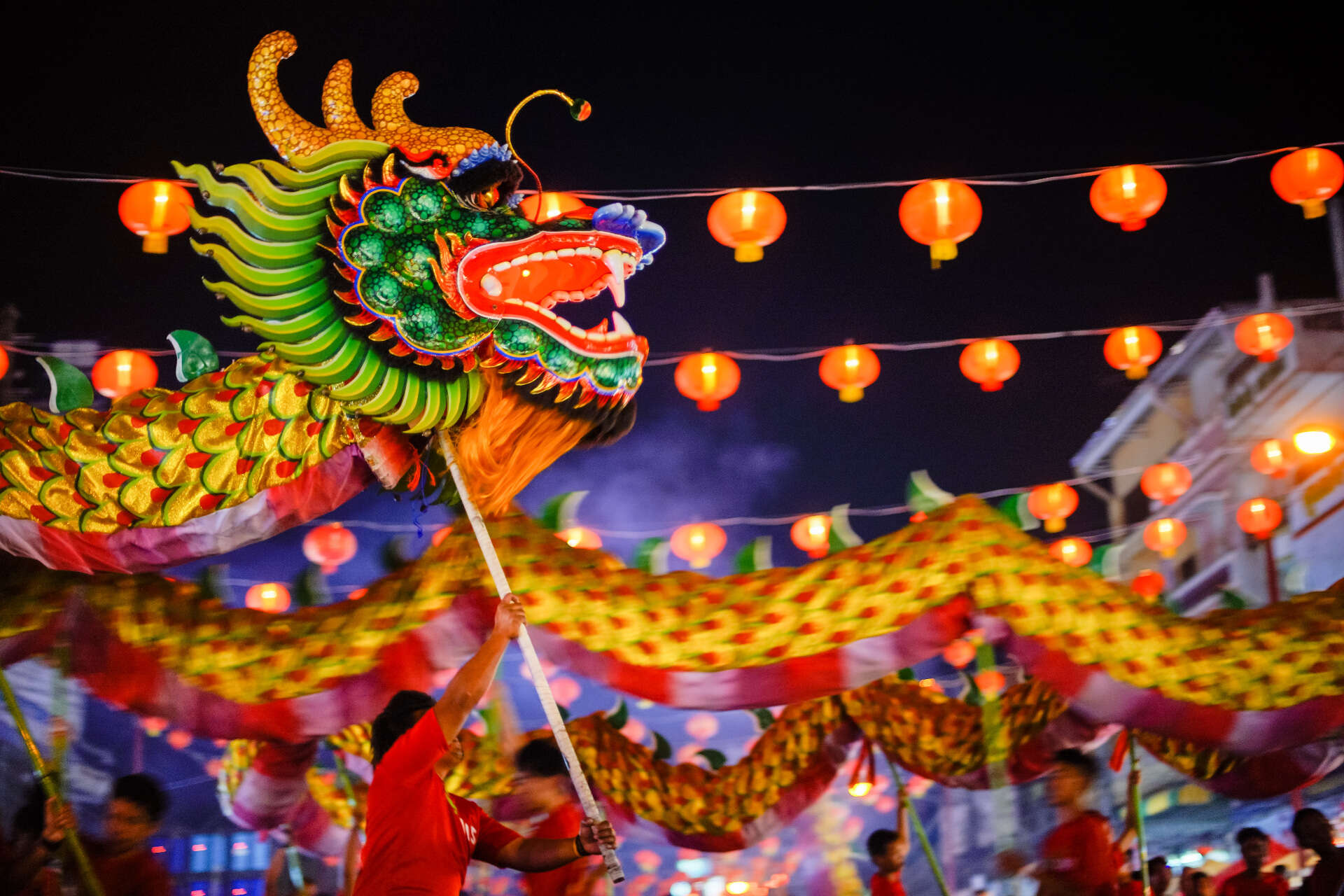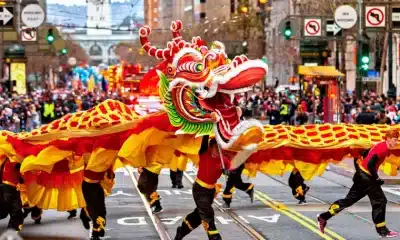Business
Why Companies Often Get Lunar New Year Wrong In The Workplace

Many Asian employees claim that their bosses lose sight of the nuances of Lunar New Year celebrations if they even acknowledge the occasion at all.
Aivee’s office was decked with Chinese lanterns to celebrate the Lunar New Year. The Sydney office of the global IT consulting firm where she worked as a lawyer also held a traditional lion dance and convened a panel discussion about Lunar New Year traditions that needed more diverse participation, except for one Chinese coworker.
However, Aivee, 32, a Malaysian, expressed dissatisfaction. The overall endeavour felt underwhelming, if not generic. She claims that little about the event planning felt inclusive or authentic. “I came in with the expectations of hearing more about Lunar New Year traditions of different Asian countries across the office.”
Why Companies Often Get Lunar New Year Wrong In The Workplace
As workforces become increasingly varied, many organisations have included various multicultural celebrations, including heritage months and culturally specific holidays. According to McKinsey & Company research, organisations prioritising diversity are 35% more likely to outperform their peers financially. Deloitte data reveals that employees with a strong sense of belonging are more productive, quit companies less frequently, and take fewer sick days.
“It leads to higher employee engagement,” says Pin-ya Tseng, a senior consultant at Paradigm, a San Francisco-based diversity and inclusion firm. She claims that workplace multiculturalism, rather than disregarding or reducing group differences, causes employees to perceive their colleagues as less biased.
However, it can be difficult to approach cultural festivities delicately – getting the details right and hitting the proper touchpoints while remaining sensitive. Experts point to the Lunar New Year as an example of how businesses can make mistakes that leave employees like Aivee feeling as if their firms have only given them lip service – or have ignored them entirely.
“Organisations need to recognise that many of their employees observe Lunar New Year,” Tseng said. “It is estimated that around two billion people worldwide celebrate the holiday.”
Many people want to celebrate Lunar New Year at work, but it’s more than a party. Instead, it presents a chance to promote cultural understanding among leaders and colleagues. When businesses need to adequately stress the significance of the Spring Festival for the various cultures that celebrate it, some employees may feel misunderstood.
Why Companies Often Get Lunar New Year Wrong In The Workplace
Kelly, 22, originally from Hong Kong, says she was left “feeling different” at work because she had to convey the significance of the Lunar New Year in her London job. “The best time of the year” is how she describes it. Her colleagues, who primarily celebrated Western holidays, needed to understand the significance or rituals after the office’s tepid, drop-by celebration.
“It’s much more difficult for them to understand when I say I’m going home for the Lunar New Year. “I’m taking two weeks off, and it’s affecting my work,” she explains. It’s a departure from the typical practice of taking end-of-year vacations, and many of her coworkers couldn’t comprehend why she was taking the break in February. Employees may be responsible for explaining their cultural practices, which is both unpaid and emotionally taxing.
Even when business executives introduce programming, employees claim they frequently get it wrong.
“We’ve seen organisations make the mistake of neglecting to acknowledge the range of countries and communities that celebrate the Lunar New Year,” Tseng said. Some businesses refer to “Lunar New Year” as “Chinese New Year,” or, conversely, presume that some Asian cultures celebrate it when they do not.
Khoi, a 23-year-old Vietnamese graduate of a big financial firm in London, is celebrating Tết. His workplace did recognise Lunar New Year but referred to it as “Lunar Chinese New Year”.
“Well, at least it’s better than just ‘Chinese New Year’,” Khoi remarks, reflecting on his prior employer’s complete lack of respect for the season. However, this “good enough” mindset can lead to workers like him accepting that firms will never get it right, lowering the bar for what they should expect from their employers. Experts argue that firms can accomplish it. Senior leaders’ active promotion of these projects is critical to their success. “If leaders aren’t visibly prioritising these events or programmes, others within the organisation won’t see them as important either,” Tseng said. “This means it will be hard to get engagement from those who may be helping create and run activities as well as those who would be participating.”
Why Companies Often Get Lunar New Year Wrong In The Workplace
However, one of the underlying challenges with executive support is a widespread lack of Asian representation in senior roles, known as the “bamboo ceiling”. In 2023, research from the MIT Sloan School of Management in Massachusetts, US, revealed that East Asian workers – Chinese, Japanese, and Koreans – were perceived as less innovative, presenting a barrier to top positions. Organically growing Lunar New Year celebrations from the top is difficult when few Asians hold key positions.
Senior managers from various backgrounds can, however, use their roles to advance diversity efforts and make beneficial changes step by step, working closely with Asian colleagues at all levels of a business. Leaders from Asian backgrounds also believe that promoting Lunar New Year diversity pays off.
“As I’ve grown professionally, I’ve seen first-hand how important it can be for myself and other Asian colleagues to have a strong support network, from a community to celebrate our culture with many people without strong family connections in-country, to advice and career support as people progress and build their careers,” says Cassandra Yong, a Chinese-Malaysian partner at Boston Consulting Group in London, who founded and led its Asian Diversity Network at the firm.
“Our Asian community has grown significantly over the years, and it was important for me to ensure everyone is able to access a network like this.”
SOURCE – (BBC)

































